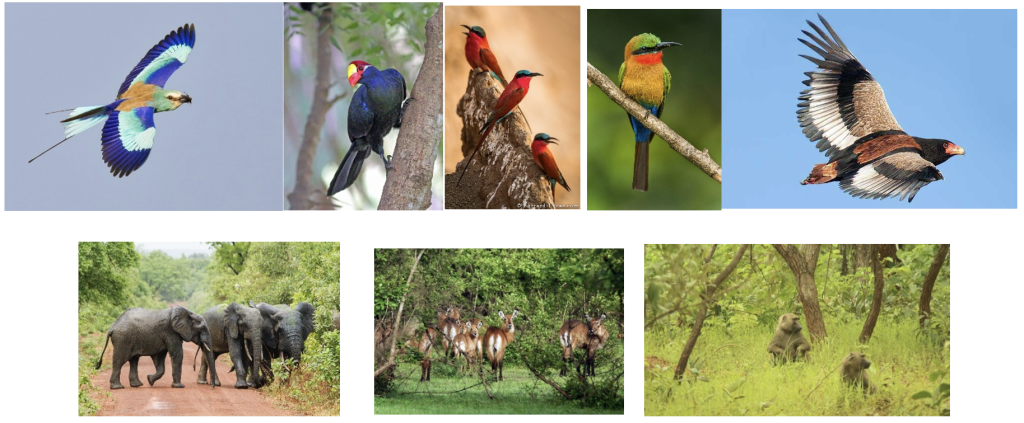
Savannah Lodge was built as a gateway to Ghana’s largest wildlife reserve. But years of neglect had turned it into a ghost—waiting for a new key.
The sun dipped behind the baobab trees, casting long shadows across the cracked tiles of the pool, which lay empty and forgotten. A single elephant grazed in the distance, its silhouette framed by the fading gold of the northern sky.
Inside, the atmosphere was just as still. Only staff lingered—some loitering by the doorway, others murmuring in quiet conversation, a few stretched out on worn‑out sofas or dozing beneath the overgrown garden’s shade. The air smelled of dry earth, and a soft chorus of crickets began to rise as daylight slipped away.

At the reception desk, senior ranger Musah stood quietly, his fingers tracing the edges of a guestbook that hadn’t seen a new entry in weeks. He could still hear the echo of laughter that once filled the lobby—birdwatchers pointing out an Abyssinian ground hornbill, families sharing stories of a close‑up elephant encounter, and the click of boots on the terrazzo floor as guests hurried to the morning game drive.

“Remember the day the herd crossed the Lovi river?” a voice whispered from the past. Musah smiled despite himself. That had been the dry season, from November through March, when warm days (30–36 °C) and cool evenings (around 15 °C) made game drives and walking safaris comfortable. With water scarce, animals gathered at the remaining waterholes—offering spectacular sightings of elephants, antelopes, buffaloes, baboons, and more. The rainy months (April to October) brought lush vegetation and migratory birds, but muddy tracks and dispersed wildlife made it a secondary choice for most visitors.
Now, even the peak seasons had thinned. The questions were different:
“Is there water today?” “Will the generator run tonight?” “Is it safe to walk to the viewpoint?”
Musah didn’t have answers anymore. The road was rough. Bookings were erratic. Rooms were tired. The rangers, once proud stewards of both wildlife and welcome, had become weary custodians of a place they no longer controlled. He glanced at the cracked wall clock—it had stopped at 3:17 weeks ago.

A soft knock at the door broke the stillness. Ranger Adiza, one of the younger rangers, slipped in, holding a folded letter in her hand. Her eyes flickered with a mixture of curiosity and fatigue.
“It’s from Accra,” she said, voice barely above a whisper. “They say new management is coming.”
Musah took the letter but didn’t open it. He turned his gaze to the faded curtains, the broken tap, the map of Mole National Park curling at the edges.
“New management”, Musah repeated. He wondered what they would see. What they would change. What they would understand about this unique environment.
Would they know that the lodge was more than a building—that it had been a resting place for elephants, a listening post for birdsong, a quiet witness to the rhythms of the wild?
Would they know that the rangers had once swept the paths with pride, not obligation?
A flash of memory cut through the gloom: a sunrise over the savanna, a line of tourists with binoculars, the rustle of acacia leaves as a troop of baboons passed by, the smell of fresh coffee brewing in the kitchen. Those moments felt like another lifetime.
Musah placed the letter on the desk and stepped outside. The air was thick with dusk; somewhere in the trees, a hornbill called, its cry echoing off the ancient baobab trunks. He inhaled deeply, feeling the cool night settle over his shoulders.
He didn’t fear change. But was he being true to himself?
Disclaimer
This story is a work of fiction inspired by the operational experiences and sectoral engagements of Hospitality Associates and its collaborators. While the narrative draws upon real industry contexts, any resemblance to actual persons, living or dead, or real-life events is purely coincidental. Characters, locations, and scenarios have been fictionalized or amalgamated to serve educational and storytelling purposes. The intent is not to critique individuals or institutions, but to distill operational insight through dramatic narrative.
